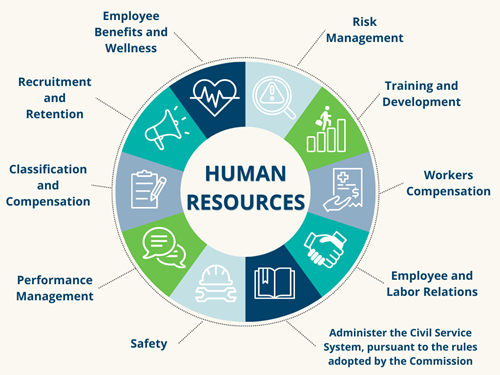Outsourcing Payroll: Maximize Efficiency And Minimize Expenses
본문
✔ Outsourcing payroll may reduce administrative concerns, conserve time, and ensure compliance with tax laws.
✔ Cost savings vary from 18%-35% typically compared to in-house payroll processing.
✔ Payroll service providers deal with wage calculations, tax filings, direct deposits, advantages deductions, and more.
✔ Businesses of all sizes benefit, particularly those without dedicated payroll staff.
✔ Choosing the right payroll service depends on company size, complexity, and require for combination with existing systems.
Every other Friday, Lisa braced herself for what had basically become a continuous source of tension: payroll. As the workplace manager for a growing home services business, she used many hats: scheduling jobs, managing invoices, dealing with HR jobs, and more. Payroll was just another responsibility on her overruning plate, and in spite of her best shots, something always seemed to go wrong.
Last pay duration, she overestimated overtime for two service technicians, resulting in a payroll correction that took hours to fix. The month before, a tax filing deadline slipped through the cracks, resulting in an expensive late cost. And then there were the constant questions from staff members about their incomes - was my bonus offer consisted of? Why are my reductions different this week? Exists still time to remedy my punch card? When will I receive my W-2?
Lisa's tension level was through the roof. Something had to change. Accordingly, Lisa started exploring her options. What if the company had someone else manage payroll? By handing off payroll to a professional provider, or, at the minimum, updating their software application, she might get rid of the risk of mistakes, guarantee compliance with tax laws, and complimentary up hours every week to concentrate on running business.

Does your payroll journey mimic Lisa's? Is payroll a challenge that looms at the end of every other week? Luckily, you're not alone. In this post, we'll explore how outsourcing payroll works, the benefits it uses, and whether it's the best relocation for your organization.
Outsourcing payroll is the practice of handing off payroll-related jobs to a third-party company who specializes in processing earnings, taxes, and other compensation-related responsibilities. Instead of handling payroll by hand - or handling multiple software application services - companies can rely on specialists to ensure employees are paid correctly and on time while staying certified with tax laws.
Payroll service providers manage a series of jobs, consisting of:
✅ Processing staff member salaries and specialist payments;
✅ Calculating and filing payroll taxes;
✅ Managing direct deposits and paper checks;
✅ Handling reductions, garnishments, and advantages contributions; and
✅ Staying up to date with ever-changing labor laws and tax rates.
Approximately 61% of business outsource their payroll processes. The decision to outsource the entire function or segment out parts, such as tax filings or direct deposit management, mainly depends on business size, payroll complexity, and internal resources.
For bigger companies with workers throughout multiple states, payroll outsourcing can simplify compliance with various tax laws and policies. But little and mid-sized businesses also benefit - specifically those without a devoted payroll expert. Considered that payroll laws often change, contracting out makes sure businesses remain certified without having to constantly keep an eye on updates.
Years ago, it was unprecedented for business to entrust payroll to an outdoors supplier. But today, advances in payroll technology make contracting out a cost-efficient and effective option. Whether you require full-service payroll support or just aid with specific tasks, outsourcing can maximize valuable time, decrease administrative headaches, and give service owners peace of mind. Statistics back this up. According to a PwC research study, business that outsource their payroll works experience cost reductions of 18%-35%, on average.
Is contracting out payroll the best option for your business? In the next section, we'll explore the crucial benefits and potential downsides to assist you choose. If not, a best practice may consist of upgrading your internal software application. While we're biased, an option like OnTheClock allows you to encapsulate time tracking, scheduling, and payroll in one platform. No more third-party costs, hold-ups, or mistakes!
Don't let taxes get you down. Make payroll simple with OnTheClock!
Your stress-free solution for payroll.
The Benefits of Outsourcing Payroll
Having your staff total payroll may look like a cost-savings step; nevertheless, the truth is that it's typically lengthy, complicated, and vulnerable to pricey mistakes. Outsourcing payroll uses companies a streamlined, safe, and affordable option. Here's how it can benefit your company:
Save Time and Boost Productivity: Payroll isn't almost transferring revenue - it involves tracking hours, computing taxes, managing advantages deductions, and guaranteeing compliance with ever-changing regulations. For little services, this obligation frequently falls on a bachelor or a little HR group, pulling focus away from tactical efforts. Outsourcing payroll gets rid of these time-consuming jobs, maximizing your group to focus on growth and staff member engagement.
Reduce Payroll Costs: Many little and mid-sized organizations discover that contracting out payroll is more affordable than preserving an group. The costs related to payroll software application, worker training, tax filing, and compliance management can build up quickly. By contracting out, companies can access expert payroll services at a foreseeable monthly cost - frequently less than the expense of hiring a full-time payroll specialist.
Minimize Errors and Ensure Compliance: Payroll mistakes aren't simply aggravating - they can result in significant punitive damages. From overlooking tax withholdings to missing out on due dates, mistakes can trigger audits, fines, and dissatisfied employees. Payroll service providers concentrate on tax compliance, keeping up to date on federal, state, and local guidelines to make sure accurate filings and timely payments.
Enhance Data Security: Payroll data includes sensitive staff member info, such as Social Security numbers and savings account details. Cybersecurity threats and internal scams dangers make payroll security a top priority. Professional payroll service providers purchase advanced file encryption, safe and secure cloud storage, and multifactor authentication to keep your business's financial information safe.
Avoid Payroll Disruptions: If your in-house payroll expert takes a vacation, gets ill, or leaves the company, payroll operations can be tossed into mayhem. Outsourcing offers connection and reliability, guaranteeing payroll is processed precisely and on time, whenever.
Simplify Direct Deposit and Benefits Integration: Many little businesses struggle to set up direct deposit or appropriately incorporate payroll with benefits administration. Payroll service providers simplify this process, making sure employees are paid immediately and deductions for advantages like health insurance and retirement strategies are dealt with correctly.
Scale With Your Business: As your company grows, payroll intricacy increases. More workers imply more tax responsibilities, advantage options, and compliance requirements. A payroll company can scale with your service, adjusting to brand-new difficulties without needing you to hire extra HR workers.
The Downsides of Outsourcing Payroll
While contracting out payroll can conserve time and lower administrative problems, it's not without its difficulties. Before devoting to an external supplier, it's necessary to weigh the possible drawbacks and identify whether the compromises line up with your service's requirements.
Loss of Control Over Payroll Processes: When you outsource payroll, you give up direct oversight of crucial payroll functions. While automation and devoted payroll specialists can decrease mistakes, you may have limited visibility into the process. If an error occurs, such as an inaccurate paycheck or a missed out on tax filing, it could take longer to deal with than if payroll were handled in-house. Additionally, you might have to rely on client assistance teams with differing levels of responsiveness rather than making immediate modifications yourself.
Data Security Concerns: Outsourcing needs sharing delicate worker details, consisting of Social Security numbers, incomes, and tax information, with a 3rd party. While many payroll suppliers execute robust security steps, information breaches remain a danger. Additionally, since you don't manage their security procedures, you're relying on their capability to secure employee information. Any lapse in security could lead to identity theft, compliance concerns, or monetary losses.
Limited Customization and Flexibility: Payroll providers normally provide standardized services that might not completely align with your business's requirements. If your service has unique payroll structures, such as specific benefits, commissions, or industry-specific deductions, adapting to a third-party system can be challenging. Furthermore, last-minute payroll adjustments, such as adding an expense compensation or remedying a tax code, might not be as seamless as they would be with an in-house payroll group.
Potential Hidden Costs: While outsourcing can appear economical, expenditures can add up beyond the base subscription fee. Some providers charge extra for year-end tax filings, compliance updates, off-cycle payroll runs, or integration with other organization software application. If your company needs regular payroll modifications or tailored reporting, these extra costs can quickly exceed the preliminary budget. Employee Experience Challenges: When payroll is contracted out, staff members typically have to get in touch with a third-party company for payroll-related concerns or problems. This can produce a detach, as staff members might battle with impersonal customer care, long haul times, or irregular support quality. Unlike an internal payroll group that comprehends business culture and policies, an outsourced supplier may not use the exact same level of familiarity or responsiveness.
Dependency on Provider Stability: Depending on an external business for payroll suggests your organization is susceptible to its operational stability. If the supplier experiences financial problem, technical failures, or sudden service disturbances, your payroll process might be impacted. In extreme cases, a company closing down all of a sudden could result in lost payroll information and considerable functional headaches.
The Different Types of Payroll Services
Not all payroll outsourcing services are developed equivalent. Businesses have different requirements, and payroll companies use different levels of service to accommodate them. Whether you wish to hand off whatever or maintain some control, there's an outsourcing design that fits your company. Here are the primary types of outsourced payroll services:
1. Full-Service Payroll Outsourcing: If you're searching for a completely hands-off method, full-service payroll outsourcing is the method to go. This kind of service provider manages every aspect of payroll, including:
- Calculating earnings and deductions;
- Managing tax filings and compliance;
- Administering worker advantages; and
- Handling direct deposits and incomes.
With a full-service provider, all you need to do is provide employee data, such as hours worked and wage updates. While this choice is the most practical, it likewise tends to be the most pricey. Plus, services require a trustworthy system for sharing precise payroll information on time.
2. Partial Payroll Outsourcing: For services that prefer to maintain some control over payroll but offload complex tasks, partial outsourcing is a terrific happy medium. Companies might pick to:
- Manage staff member time tracking and presence in-house while contracting out tax filing;
- Handle direct deposit themselves however contract out compliance and reporting; and
- Keep payroll processing internal however use an external company for year-end tax return.
This design permits business to decrease their administrative problem while preserving oversight on crucial payroll functions.
3. Cloud-Based Payroll Services: Cloud-based payroll contracting out offers versatility and real-time access to payroll information. These services:

- Automate payroll calculations and tax filings;
- Allow workers to gain access to pay stubs and tax files through self-service portals; and
- Integrate with accounting and HR software.
Since cloud payroll solutions are web-based, businesses can manage payroll from anywhere. This option is ideal for remote teams and growing business that require scalability.
4. International Payroll Outsourcing: For business with an international workforce, worldwide payroll companies streamline the intricacies of handling employees throughout various nations. These services:

- Ensure compliance with local tax laws and labor policies;
- Handle multi-currency payroll processing; and
- Manage cross-border payroll tax filings.
Outsourcing international payroll can avoid expensive compliance mistakes while streamlining payments for abroad employees.
5. DIY Payroll with Provider Support: Some payroll suppliers use a hybrid technique where services deal with many payroll jobs but utilize software and tools offered by the contracting out business. This design is perfect for business that:
- Want to keep direct control over payroll processing;
- Need automation tools to streamline estimations; and
- Prefer expert support for compliance questions.
This approach integrates the flexibility of internal payroll with the security of expert guidance.
How to Choose the Proper Payroll Partner
The best payroll service depends on your business's size, structure, and needs. If you desire a totally trouble-free experience, full-service outsourcing might be the very best choice. If you need versatility, partial or cloud-based services might be a better fit. Here's a list of actions you ought to think about when picking the ideal payroll service provider.
Define Your Payroll Needs: Before comparing service providers, summary precisely what you need from a payroll service. Are you searching for full-service payroll that deals with whatever, or do you choose partial payroll outsourcing where you keep control over certain tasks? Consider functions like direct deposit, tax filing, advantages administration, and compliance tracking. If your business operates in several areas or uses remote workers, you might likewise need multistate or worldwide payroll abilities.
Integration with Existing Tools: A smooth payroll process depends upon how well your payroll supplier integrates with your existing systems. Search for services that connect with your scheduling software, HR platforms, and time tracking tools. Proper integration can minimize manual data entry, reduce mistakes, and improve general effectiveness.
Compliance and Tax Expertise: Payroll is more than just paying workers - it involves tax filings, deductions, and compliance with labor laws. A reliable payroll partner need to stay up to date with changes in tax guidelines and ensure precise reporting to prevent expensive charges. Ask prospective providers about their compliance processes and how they deal with updates to federal, state, and regional tax laws.
Pricing Structure and Value: Cost is a significant element when choosing a payroll supplier, but the most inexpensive choice isn't always the very best. Compare prices designs, as some providers charge a flat month-to-month cost, while others expense per pay period or per worker. Many payroll solutions, including OnTheClock Payroll, tend to be around $40 each month and $6 per staff member. Make certain to account for any additional costs for tax filings, direct deposits, or HR add-ons. The best payroll partner provides a balance of affordability and value, saving you time and lowering payroll-related headaches.
Customer Support and Service Quality: Payroll mistakes can be demanding, so having access to responsive client assistance is necessary. Evaluate the provider's service alternatives: Do they offer live phone assistance, chat, or e-mail assistance? Check online evaluations and reviews to evaluate their reputation for customer care. A payroll partner with strong assistance can quickly fix issues and keep payroll running efficiently.
Security and Data Protection: Payroll information contains sensitive worker information, making security a top concern. Ensure your payroll provider utilizes strong file encryption, multi-factor authentication, and safe and secure servers to safeguard against cyber risks. Inquire about their information backup policies and how they handle security breaches.
Scalability and Flexibility: Your payroll requirements might progress as your organization grows. Choose a supplier that can scale with you, whether you're including new workers, broadening to several areas, or requiring additional functions like benefits management or time tracking. A flexible payroll partner will accommodate modifications without needing a significant overhaul of your payroll procedure.
Service Level Agreements (SLAs): A reliable payroll supplier ought to use clear service level arrangements (SLAs) that describe key performance expectations, such as payroll accuracy, processing times, and compliance warranties. These agreements assist make sure accountability and offer a standard for assessing service quality.
Reputation and Industry Experience: Finally, research the supplier's performance history. Look for consumer reviews, industry accreditations, and case studies that show their know-how. If possible, pick a payroll partner with experience in your market, as they'll be familiar with sector-specific payroll requirements and compliance challenges.
Outsourcing Payroll: Common Challenges and Best Practices

Outsourcing payroll can be a game-changer for services, lowering administrative workload, enhancing accuracy, and guaranteeing compliance. However, handing over such a crucial function includes its own set of challenges. If not managed properly, business can face communication breakdowns, security dangers, and compliance problems. Below are some typical difficulties services come across when contracting out payroll and some steps to assist overcome them.
Loss of Control Over Payroll Processes
When you contract out payroll, you give up direct oversight of payroll calculations, tax filings, and worker payments. This can lead to concerns about transparency, precision, and responsiveness.
- Choose a service provider that provides real-time reporting and payroll dashboards so you can monitor transactions.
- Establish clear expectations from the start, consisting of deadlines, information accuracy standards, and escalation procedures.
- Maintain internal payroll knowledge to review reports and make sure payroll accuracy.
Communication Breakdowns
An absence of proper communication between your company and the payroll service provider can result in mistakes, delays, and frustration. Misunderstandings about data submissions, reporting requirements, and staff member categories can trigger significant interruptions.
- Designate a devoted point of contact on both sides to guarantee smooth communication.
- Establish routine check-ins to examine payroll procedures, resolve issues, and offer updates.
- Use cloud-based payroll platforms that permit real-time access to reports and automated alerts.
Data Security and Privacy Risks
Payroll data includes extremely sensitive employee details, consisting of Social Security numbers, bank details, and salary records. A security breach can result in identity theft, financial fraud, and legal liabilities.
- Deal with a provider that uses advanced encryption, multifactor authentication, and safe and secure data storage.
- Limit access to payroll information by specifying user functions and approvals within the system.
- Regularly review the service provider's security policies and require compliance with industry requirements like SOC 2 and GDPR.
Compliance and Regulatory Risks
Payroll laws and tax policies frequently change, and noncompliance can lead to hefty fines and penalties. If your payroll company fails to stay updated, your company might be at threat.
- Partner with a service provider that specializes in your market and is skilled in federal, state, and regional tax laws.
- Request routine compliance audits to ensure payroll tax filings and worker classifications are precise.
- Maintain internal oversight by staying notified about payroll guidelines that affect your organization.
Hidden Fees and Unexpected Costs
Some payroll suppliers charge additional for services like tax filings, compliance updates, and software upgrades. Without a clear understanding of expenses, companies can face spending plan overruns.
- Review the contract completely before finalizing and clarify all expenses, consisting of per-payroll fees, year-end reporting charges, and add-on services.
- Choose a supplier with transparent, all-inclusive rates to avoid unforeseen costs.
- Regularly examine whether the payroll service is affordable for your company.
Integration Challenges
If your payroll company's system doesn't incorporate efficiently with your existing accounting, HR, or time tracking software application, it can result in inefficiencies and manual data entry errors.
How to Overcome It

- Select a provider that offers smooth integration with your existing tools, such as QuickBooks or OnTheClock.
- Test the combination before fully transitioning to outsourced payroll to recognize prospective problems.
- Work carefully with your company to customize data exports and imports for accuracy and performance.
Final Thoughts
Lisa's story is all too familiar to numerous company owner and office supervisors. Payroll errors, compliance concerns, and consistent interruptions can turn payday into a source of stress rather of a basic process. By outsourcing payroll, Lisa took control of her time, decreased mistakes, and ensured her team was paid precisely and on time.
If payroll has actually become a concern for your organization, it might be time to explore a better solution. OnTheClock Payroll simplifies the procedure, so you can focus on running your business - not worrying over paychecks. Ready to streamline payroll? Try OnTheClock Payroll today and let us manage the heavy lifting so that you can concentrate on what matters most: growing your service!

댓글목록 0
댓글 포인트 안내